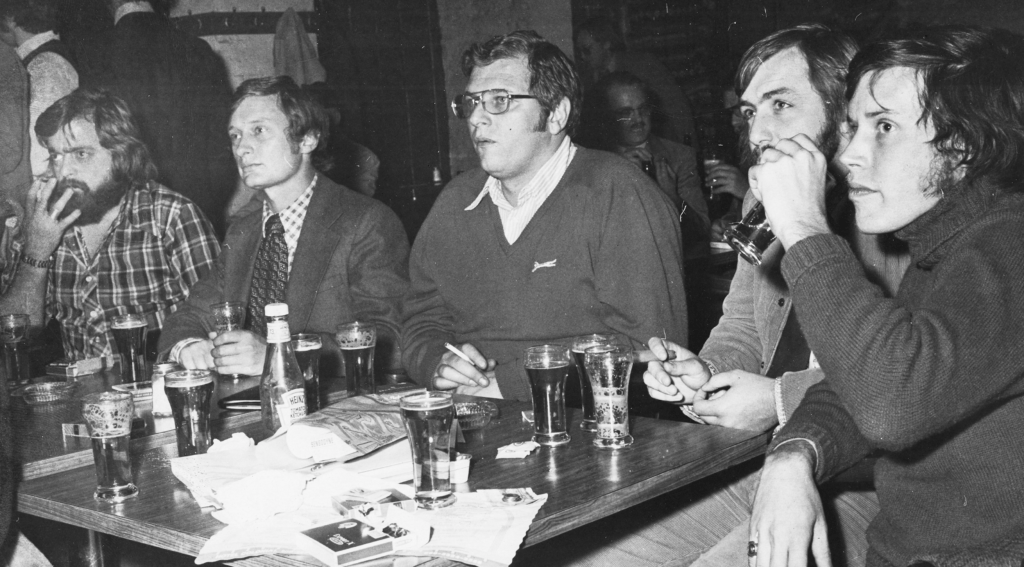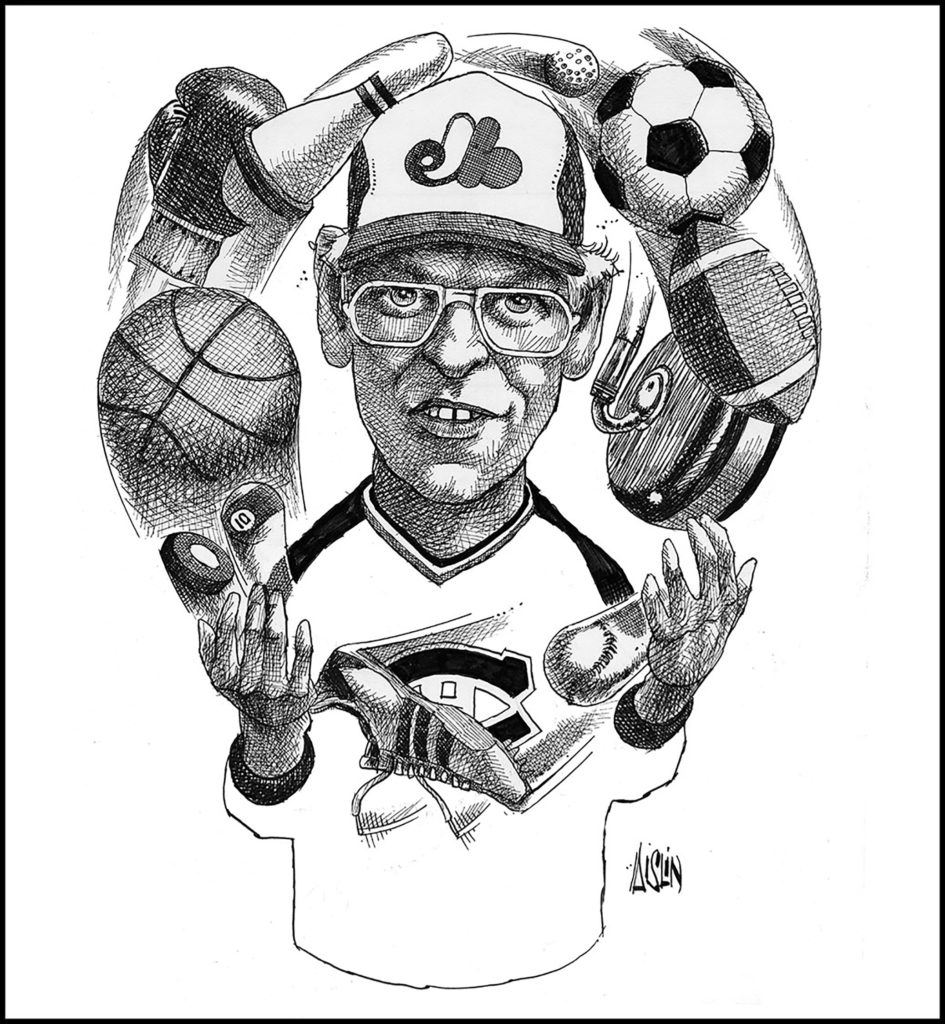Ted Blackman—A Gruff Exterior and a Kind Heart

L. Ian MacDonald
September 30, 2022
It was 20 years ago this weekend, on October 2, 2002, that we lost Ted Blackman, the most gifted sports columnist of his generation at The Montreal Gazette, who went on to become a legendary voice of morning radio in Montreal.
Ted left us way too early, only 60 when he passed, a casualty of the high living which, as he acknowledged, he did all too well. In his later years, he eased off, but in the end the damage had been done.
As a sports writer and columnist, he could do it all, beginning with the Montreal Expos in their memorable inaugural season of 1969. They played at Jarry Park, improvised as a major league venue until the Olympic Stadium was finally completed for the 1976 Summer Games.
It was a summer, and a season, for the ages. And if Expos fans wanted to know what management was thinking, and what the players were saying behind the scenes, they only had to read Ted’s coverage in the Gaz every day. Though only in his late 20s at the time, he owned the story. And when Dink Carroll retired as Gazette sports columnist after several decades in the role, Ted was the logical, and only, choice to succeed him.
I was then a junior reporter in the sports department, fresh out of Loyola College (now part of Concordia University) in that celebrated summer of 1969. My beat was college sports, which would never have made the “break page” of the sports section, except that the McGill Redmen emerged as a football powerhouse that fall, going all the way to the national championship before losing the Vanier Cup.
I was also assigned to the desk, where I often handled Ted’s column for the first edition, or his baseball story for the home edition. Where he could have lorded it over me as a 21-year-old kid, he never showed anything but collegial courtesy and personal kindness. That was “Teddy Bear”, as he was known, for a gruff exterior but a gentle heart.
Ted also enjoyed nights out with “the boys”, whether at the Montreal Press Club after hours in the old Mount Royal Hotel, or just watching a hockey game at a place like the Colonial Tavern. In those days, only beer was sold in taverns and women weren’t allowed in—no wonder they all went out of business, as they should have.
By the mid-1970s, Ted had also become a familiar voice of morning radio, doing the sports on Montreal’s top rated English morning show with George Balcan on CJAD. More than a decade later, when he left to become morning host and program director of rival CFCF radio, he talked me into co-hosting a mid-morning talk show with Pierre Bourgault. It was supposed to be federalist vs. separatist, but instead of arguing and shouting we had spirited but cordial conversations. Of course, hardly anyone listened, and before long we were cancelled. And Ted later found his way back to CJAD, where he was Balcan’s kindred spirit until George’s retirement at the turn of the century. (And appropriately, they were inducted together into the station’s hall of fame in 2015.)
Of all his great work as a sports writer, none stands out more than his coverage of the famous Canada-Russia hockey series in September 1972, as Terry Mosher writes in Montreal to Moscow, his wonderful new book of Aislin cartoons, sketches and stories on the series that captivated the country and changed the game forever.

Ted and Terry were in Moscow together with Gazette executive editor Denis Harvey and photo editor George Cree. But it was Ted, as the writer, who captured the drama. From the woes of the first four games in Canada and the fifth in Moscow, which saw Team Canada behind three games to one, with one tied, and needing to win the last three games on foreign ice to salvage the series. Which they did, with Paul Henderson’s three consecutive game-winning goals, including the one to break a tie with 34 seconds left in Game 8, perhaps the most famous goal in hockey history. Mosher devotes two pages to excerpts of Ted’s post-game quotes from players. And in those days, reporters did one-on-one interviews in the dressing room and worked from hand-written notes. As Ted wrote: “Yvan Cournoyer, who scored the tying goal, slumped in the corner of the room, drained. His only words explained his performance and the enormity of the series: ‘I’ve never felt so much pressure in my life,’ said the guy who’s helped to win six Stanley Cups.”
And Ted got the whole story filed in time for the first edition. He wrote the best stuff, at wire service speed.
When Ted died, The Gazette ran a number of tributes, including my column that was published on the morning of his funeral.
Before the service, we were standing around outside the Erskine and American United Church on Sherbrooke Street. The great Jean Béliveau, whom I was privileged to call a friend, came over to say he’d seen the piece. We then walked into the church together and Big Jean joined me in the last pew, where journalists always sit at funerals.
A couple of minutes later, a well-known Habs ticket scalper went by us, walked up to the front of the church and sat right behind Ted’s family.
Rob Braide, who had been program director at CJAD, had the last word on that.
“Only at Ted’s funeral,” he said, “would the scalper have a better seat than Jean Béliveau.”
Only perfect.
L. Ian MacDonald is Editor of Policy Magazine.
